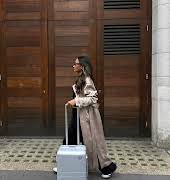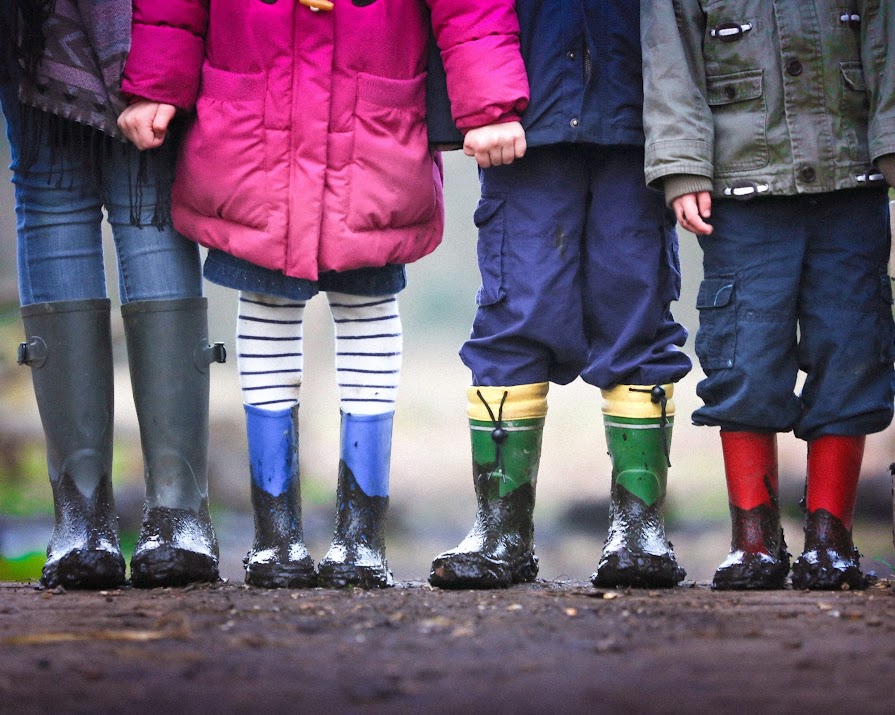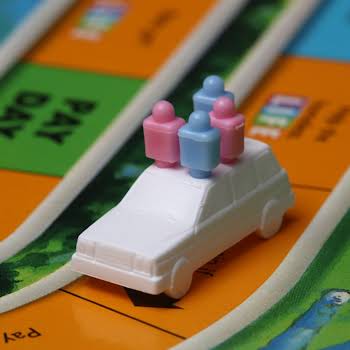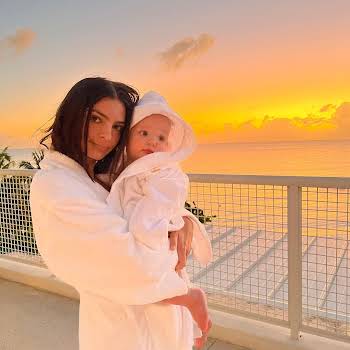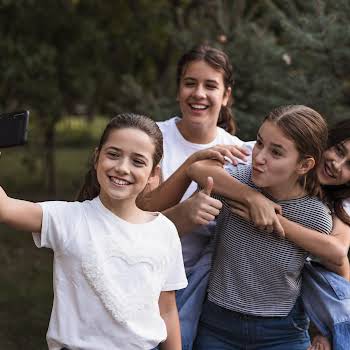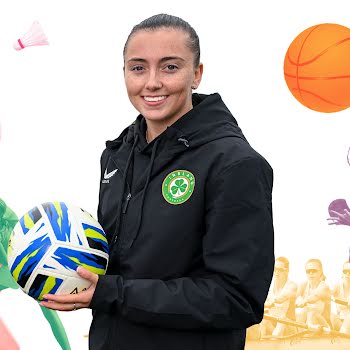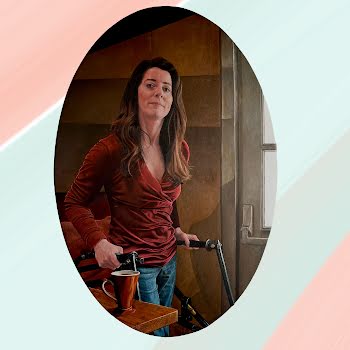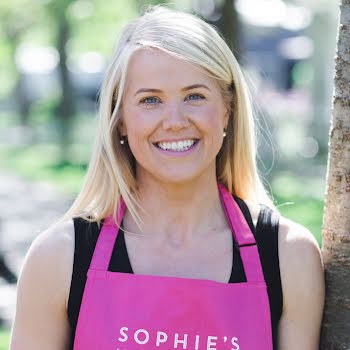
GPs and crèches are turning children without negative Covid-19 tests away. Parents are in for a long and challenging winter
By Dominique McMullan
01st Sep 2020
01st Sep 2020
Every year, when children go back to preschool and school, sniffles, sore throats and coughs are abundant. Before Covid-19 they were a mild annoyance. This year, these previously innocuous ailments are set to throw our lives, and possibly our healthcare system, into disarray. Dominique McMullan speaks to two mums, and a GP, who are bracing for the storm.
As we face into winter, there is one thing on our minds. Our health. If you are a parent, your child’s health is front and centre. Children’s immune systems are not as robust as adults. Dr Laura Lenihan GP, sat down with me to explain. “There are hundreds of different viruses that affect children every year. Some are more common than others. Preschool children will get on average at least six colds per year! Healthy children can have up to 12 viral illnesses per year in the first few years of life”.
Temperatures are commonplace with these viruses. But they can still be frightening. I was ready to call an ambulance the first time my child spiked a temperature — it scared me half to death. I rang a 24-nurse service, and after a series of questions, I was told to give him some Calpol, and visit the GP in the morning (I am not a medical doctor. If you are worried in any way about your child’s health, you should visit your GP.) We dragged his cot beside our bed, and lay awake listening to each breath until the morning when we got him the first GP appointment of the day.
Speaking to the GP was a huge relief. He was fine. The fever subsided. But this was in a world before coronavirus. This scenario would play out very differently today.
This week I spoke to two mothers of young children. Their experiences were strikingly similar. They both had one-year-olds with temperatures. So far, so normal. But both of their experiences paint a looming picture, of which the medical world is aware. They are worried that what happened to them, will become all too familiar for the parents of Ireland this winter, and for the healthcare system on which we rely so heavily.
Straight to Crumlin
Sophie is mother to one-year-old twins. One of the twins, Arthur, spiked a temperature. “He was clingy and not himself,” Sophie told me. She rang the GP worried that he might have an ear infection. They called her back later that morning. Sophie explains, “We talked through the symptoms. I wasn’t too worried, but you just want someone to give them a look over. Over the phone, they can’t see him, or look into his ear, so I don’t feel they can diagnose anything properly. You worry, then, that you are not giving all the right information.”
Arthur had no respiratory symptoms. Sophie says, “The doctor didn’t think it was Covid-19. But she said that because of guidelines, and the fact that he had a temperature, she couldn’t have him into the surgery without a negative Covid-19 test. She referred him for a test and later on Friday we got a notification that a test slot was available on Sunday evening at 6pm. Two days later.”
Two days is too long for a sick child to wait to see a doctor. I asked Dr Laura Linehan about this. She said, “Honestly, it is up to individual GPs to make this decision. If particular GPs have decided not to see children with these symptoms, then it will become difficult this winter. Some will make the decision to do video or telephone consultations. Some will give antibiotics. But we need to make sure we aren’t missing anything else – it’s particularly important if the child is unwell – as children don’t tend to get unwell with COVID.”
Sophie’s GP checked in again with Sophie at the end of the day. At this point Arthur seemed ok, but she told Sophie that if Arthur felt any worse, she should go to Crumlin Children’s Hospital. “It was close to bedtime so I stripped him off for bath and I noticed his skin was mottled and a weird colour, and he had a temperature again.” Sophie made the decision to head for Crumlin and saw a doctor within 30 minutes of arrival.
Sophie was relieved to see a doctor. After testing, they informed her that Arthur had a virus, that was not coronavirus, and that Calpol and Neurofen should resolve his symptoms until he felt better. “They did bloods, urine, etc. They didn’t think it was Covid-19, but they advised going to the test on Sunday anyway.” On Sunday Arthur took the test, and a few days later got his negative results back. “The worst was passed when he got tested. I was relived that he didn’t have to get a swab up his nose; it was in the throat instead. It was punctual and fine. But ultimately it felt unnecessary.”
She continues, “The GP was supportive but her hands were tied. Crumlin was amazing. I didn’t see any other patients. They had full PPE. But if every child with a temperature has to go to Crumlin, we will be putting real pressure on the hospital systems come winter.”
And herein lies the problem. Without full PPE, some local GPs will not see anyone with symptoms resembling those of Covid-19. But many childhood illnesses have symptoms that overlap with Covid-19. Laura Lenihan explains, “Viral illnesses can present in a variety of ways — like coronavirus or COVID19. In all honesty, it’s going to be pretty difficult to know whether it is coronavirus or not as fever is one of the testing criteria; along with a new cough, shortness of breath or deterioration of an existing respiratory condition. The other symptoms such as loss of smell or taste or distortion of taste are going to be more difficult for children to express.”
So what are we to do with every runny nose and sore throat that comes our way this winter? Honestly it puts GPs in a difficult position as well as parents, but all we can do is strive to do our best.”

Missed a week of creche
Sarah is the second mother I spoke to. She is a nurse. Her one-year-old spiked a temperature of 39.9. Both children had nearly identical symptoms on calling the GP. Unlike Sophie, Sarah’s GP saw her first thing in the morning. Sarah was sure her son had an ear infection, but on examination the GP knew immediately that he had tonsillitis and put him on antibiotics. Within 48 hours, he was a different child.
The GP did not think he had Covid-19, he did not prescribe a test. Once home from the GP, Sarah contacted her crèche to let them know that her son was unwell and would miss crèche that day. They suggested him getting a Covid-19 swab. Sarah explains, “Crèche said he had to have a negative Covid-19 test to come back. The GP gave us a very considered email saying it was safe for him to go back to crèche. But the crèche did not consider that enough. They wanted to know that he was symptom free. He was, I mean, he was perhaps a little cranky, but he is also a one-year-old. In the end they wouldn’t take him for a week.”
Sarah did not want to bring her son for an unnecessary test, and so had to keep an otherwise well child at home for a week. She says, “We are both working full time. We were able to get help from a childminder on Friday, luckily. But that meant we ended up paying for crèche as well as a childminder. We won’t be able to do that every time.”
Sarah continues, “I know the guidelines have been revised, but I got the impression that crèches are making it up as they go along.” I ask Dr Laura Lenihan about this scenario. She explains, “It’s clear that parents are going to have to be more vigilant this year and children are definitely going to be kept at home more often than before. According to the latest guidance, if a child is ‘otherwise well’ and doesn’t have any symptoms of COVID19 (as outlined above) then they can go to school. The childcare service provider or school setting should be up to date with this guidance and accept children in this regard. If you think of all the children that will be sick this winter it’s not going to be possible for GPs to write notes for every child that must attend or not attend school.”

The value of health
If a child is sent for a Covid-19 test, all members of the family and anyone the child has been in close contact with, must isolate until the results are received. Laura Linehan explains, “All other family members living in the home should stay home until the child has a negative test – this means siblings shouldn’t go to school and parents shouldn’t go to work.” It can take up to two days to get a test, and another two to receive results.
And what about the ethics of sending a young child for a potentially very uncomfortable test? Laura Linehan “An issue exists due to the nature of the test. It’s NOT nice. It involves using a swab into the nose and back of throat and is very uncomfortable, making it difficult to do with children. They are hoping to have another method to use in the coming weeks – but this hasn’t been confirmed yet.”
We’ve all learnt the value of health this year. The majority of Ireland’s population want to do everything possible to protect us against coronavirus. But our health relates to more than Covid-19. It can be scary when something, anything, is wrong with your baby. As mothers, we worry. For first time mothers especially, your relationship with your GP is essential. The soothing, calming, reassuring presence of your local doctor provides a safe space in what can feel like a sea of scary confusion when you are responsible for a little life. Childhood illnesses can flair quickly. As parents, we need quick and straightforward access to our local GPs. Laura Lenihan says, “I realise this is going to be challenging for many – I’m not looking forward to this winter. But we must try and get through it.”
This year, as parents, many of us have learnt the value of the resources that surround us. Without access to childcare providers and accessible healthcare, life grinds to a halt. As winter looms, we need to recognise, quickly, the vulnerable position that these two precious resources are in.









